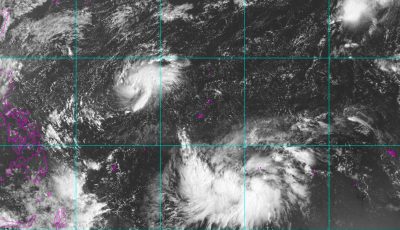Global Companies to tie up tuna vessels as fisheries access under treaty is in question
SAN DIEGO—The Global Companies (Ocean Global, LLC, Sea Global, LLC, and Pacific Global, LLC) are summoning their U.S. flag tuna vessels into port with a plan to suspend operations for the foreseeable future. The unprecedented move is in response to learning on Christmas Eve that all U.S. vessels operating in the Western Pacific Ocean under the South Pacific Tuna Treaty are to halt operations effective Dec. 31, 2015.
In a letter to the American Tunaboat Association, the Department of Commerce’s National Marine Fisheries Service Honolulu Director, Mike Tosatto, advised that all U.S. vessels are prohibited from fishing in the Western Pacific Ocean until licenses from the Pacific Island Forum Fisheries Agency are issued for 2016.
Tosatto’s guidance was direct: “Under the Treaty and SPTA, (16 USC 973c), U.S. purse seiners may not be used for fishing in the Licensing Area unless validly licensed under 50 CFR 300.32.”
The purse seiner conflict is the result of a recent request by U.S. tuna fleet operators who asked the U.S. State Department, through the ATA, to reduce the number of purchased access days; the days were accepted just five months ago by the entire fleet during August negotiations in Brisbane, Australia.
While the Global Companies and other similar U.S. vessel operators are prepared to honor the commitments made in Brisbane, other members of the U.S. tuna fleet have now determined that they cannot pay the access fee due to economic hardship.
“Our fleet is essentially being held hostage by the actions of a few fleet operators, who are not willing or are unable to honor their commitments,” said Global Companies shareholder J. Douglas Hines. “Regardless, the remaining U.S. vessel owners have no alternative but to adhere to the guidance in Tosatto’s letter and tie up our vessels.”
According Hines, one owner of a major fleet whose representative was present at the Brisbane meeting has now determined not to pay as he considers the agreement a “bad deal and not economically feasible,” while another vessel owner that was part of Donwong Korean JV operation determined to simply exit the fishery and forego their commitment, leaving the balance of the fleet to absorb their commitment.
“Although The Global Companies will continue to support ongoing efforts of U.S. State Department to resolve the controversy, our position remains that vessels that pay their days should be granted licenses and the access that comes with it, and that the FFA can sell the days not needed by the U.S. fleet,” Hines said.
Without a new treaty or interim agreement, all U.S. funds headed to the FFA will end, including the State Department’s economic assistance. This may result in the collapse of the U.S. tuna fleet and the 27-year-old U.S. South Pacific Tuna Treaty, which has been a cornerstone of commercial support to the Pacific Island Nations.
While the foreign owned canneries in American Samoa are capable of obtaining raw material from their other lower cost operations, vessel owners have no such options. The true impact of this controversy will be felt by the majority of U.S. vessel owners and vessel services in U.S. territories in the Pacific and the Island parties that benefit from those fishing operations.
“The events of last week not only severely impact the lives of our 3,500 crew, officers, support members and family members, but also the thousands more who rely on supply from our fleet in the U.S. and abroad,” Hines added.



























